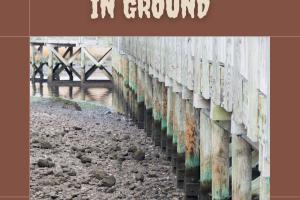Ultimate Guide to Preventing Wooden Post Rot in the Ground

-
Quick Links:
- 1. Introduction
- 2. Understanding Wood Rot
- 3. Causes of Wood Rot
- 4. Preventive Measures
- 5. Treatments and Techniques
- 6. Case Studies
- 7. Expert Insights
- 8. FAQs
1. Introduction
Wooden posts are widely used in various construction applications, from fences to pergolas. However, they are particularly vulnerable to rot, especially when buried in the ground. Protecting these posts is essential to ensure their longevity and structural integrity. In this comprehensive guide, we will explore effective strategies to prevent wood rot and keep your wooden posts in excellent condition.
2. Understanding Wood Rot
Wood rot is a form of decay that occurs when wood is exposed to moisture, fungi, and bacteria. It compromises the integrity of the wood, leading to structural failure if not addressed promptly. Understanding the types of wood rot, including:
- White Rot: Affects the cellulose and hemicellulose in wood, leaving a bleached appearance.
- Brown Rot: Decomposes cellulose, leaving behind a brown, crumbly material.
- Soft Rot: Occurs in poorly ventilated or wet conditions, leading to soft, spongy wood.
Recognizing these types of rot is crucial for implementing effective prevention strategies.
3. Causes of Wood Rot
Several factors contribute to wood rot, including:
- Excessive Moisture: Prolonged exposure to water, whether from rain, irrigation, or ground moisture.
- Poor Drainage: Water pooling around posts due to inadequate drainage.
- Soil Composition: Certain soils retain moisture more than others, increasing the risk of rot.
- Poor Ventilation: Lack of airflow around the wood can trap moisture.
4. Preventive Measures
To effectively protect wooden posts from rotting, consider the following preventive measures:
4.1 Choosing the Right Wood
Opt for naturally rot-resistant wood types such as:
- Cedar
- Redwood
- Teak
These woods have natural oils that help resist moisture and decay.
4.2 Proper Installation Techniques
Ensure proper installation by:
- Digging holes deep enough to allow for adequate drainage.
- Setting posts in gravel to promote drainage away from the wood.
- Using concrete or quick-setting cement to secure posts while ensuring drainage.
4.3 Applying Protective Coatings
Protective coatings, such as sealants or wood preservatives, can significantly extend the life of wooden posts. Consider using:
- Wood Sealant: Forms a barrier against moisture.
- Wood Preservative: Penetrates the wood to prevent fungal growth.
5. Treatments and Techniques
If wooden posts are already showing signs of rot, prompt action is essential. Here are some effective treatments:
5.1 Removal of Affected Areas
Carefully remove any rotting wood using a chisel or sharp knife. Ensure you go deep enough to remove all affected areas.
5.2 Wood Fillers and Epoxy
For minor rot, consider using wood fillers or epoxy to restore structural integrity. Follow the manufacturer’s instructions for the best results.
5.3 Replacing Posts
In severe cases, replacing the post may be the only viable solution. When doing so:
- Choose a rot-resistant wood.
- Follow proper installation techniques as outlined above.
6. Case Studies
Over the years, various case studies have illustrated effective methods of preventing wood rot. For instance:
Case Study 1: Residential Fence
A homeowner in Oregon replaced their cedar fence posts with treated wood posts. By using gravel for drainage and applying a sealant every few years, the posts lasted over 15 years without signs of rot.
Case Study 2: Community Pergola
A community project in California utilized redwood posts and applied a wood preservative before installation. The posts remained in excellent condition after five years, showcasing the effectiveness of regular maintenance.
7. Expert Insights
Experts recommend regularly inspecting wooden posts for early signs of rot, such as discoloration or a spongy texture. Dr. Jane Smith, a timber preservation specialist, emphasizes, "The key to protecting wooden posts lies in proactive maintenance. Regularly applying preservatives and ensuring proper drainage can save homeowners from costly replacements."
8. FAQs
Frequently Asked Questions
- Q1: How often should I apply sealant to my wooden posts?
A1: It's recommended to reapply sealant every 2-3 years, depending on exposure to the elements. - Q2: Can I use untreated wood for fence posts?
A2: While possible, untreated wood is more susceptible to rot; using treated or rot-resistant wood is advisable. - Q3: What is the best way to remove rotting wood?
A3: Use a chisel or sharp knife to carefully remove all affected areas, then treat or replace as necessary. - Q4: Does the type of soil affect wood rot?
A4: Yes, soil that retains moisture can increase the risk of rot; proper drainage is essential. - Q5: How can I tell if my post is rotting?
A5: Look for discoloration, a spongy texture, or the presence of fungi around the base. - Q6: Are there any natural methods to protect wood?
A6: Natural oils like linseed oil can help protect wood, though they may require more frequent application. - Q7: Can I paint over wood preservatives?
A7: Yes, but ensure the preservative has dried completely before applying paint. - Q8: What is the lifespan of treated wood posts?
A8: Treated wood can last anywhere from 15 to 30 years, depending on conditions. - Q9: Can I prevent rot in already installed posts?
A9: Yes, applying sealants and ensuring drainage around the posts can help mitigate further rot. - Q10: Should I install wooden posts in concrete?
A10: It's advisable to use gravel for drainage, but concrete can be used if proper drainage is ensured.
Random Reads
- Making the best clan in clash of clans
- How to remove and replace toilet tank
- Seamless flat panel tv installation
- How to make a phone call
- Unlock dry bowser mario kart wii
- Unlock android without google account
- How to remove screw without head
- How to remove sharpie from painted wall
- How to paint masonry walls
- How to paint glass lamp shades